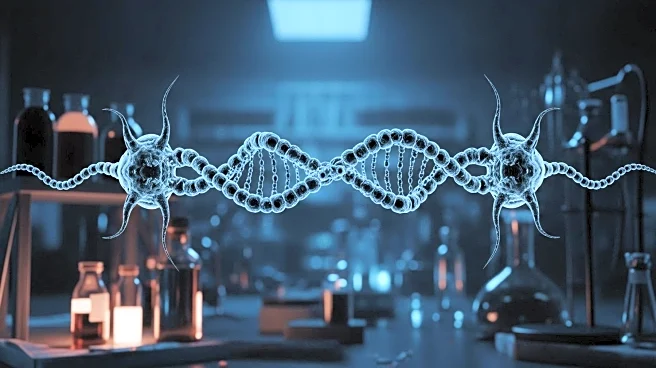What's Happening?
Researchers at Imperial College London have discovered 'pirate' phages that hijack the tails of other viruses to invade new bacterial hosts, facilitating horizontal gene transfer and the spread of antimicrobial resistance (AMR). These phages produce tailless capsids and 'pirate' tails from unrelated bacteriophages, injecting DNA into different bacterial species. The study highlights the role of phages in bacterial evolution and antibiotic resistance spread.
Why It's Important?
The discovery of 'pirate' phages provides new insights into the mechanisms of AMR spread, which is a significant concern for public health. Understanding how phages facilitate gene transfer can inform the development of new strategies to combat antibiotic resistance. This research may lead to innovative approaches in diagnostics and antimicrobial therapies, potentially reducing the impact of resistant infections.
What's Next?
Further research is needed to explore the molecular basis and ecological consequences of phage-mediated gene transfer. The study's findings could lead to the development of next-generation therapies and diagnostic tools to address AMR. Collaboration between researchers and AI technology may continue to uncover new pathways for combating antibiotic resistance.










